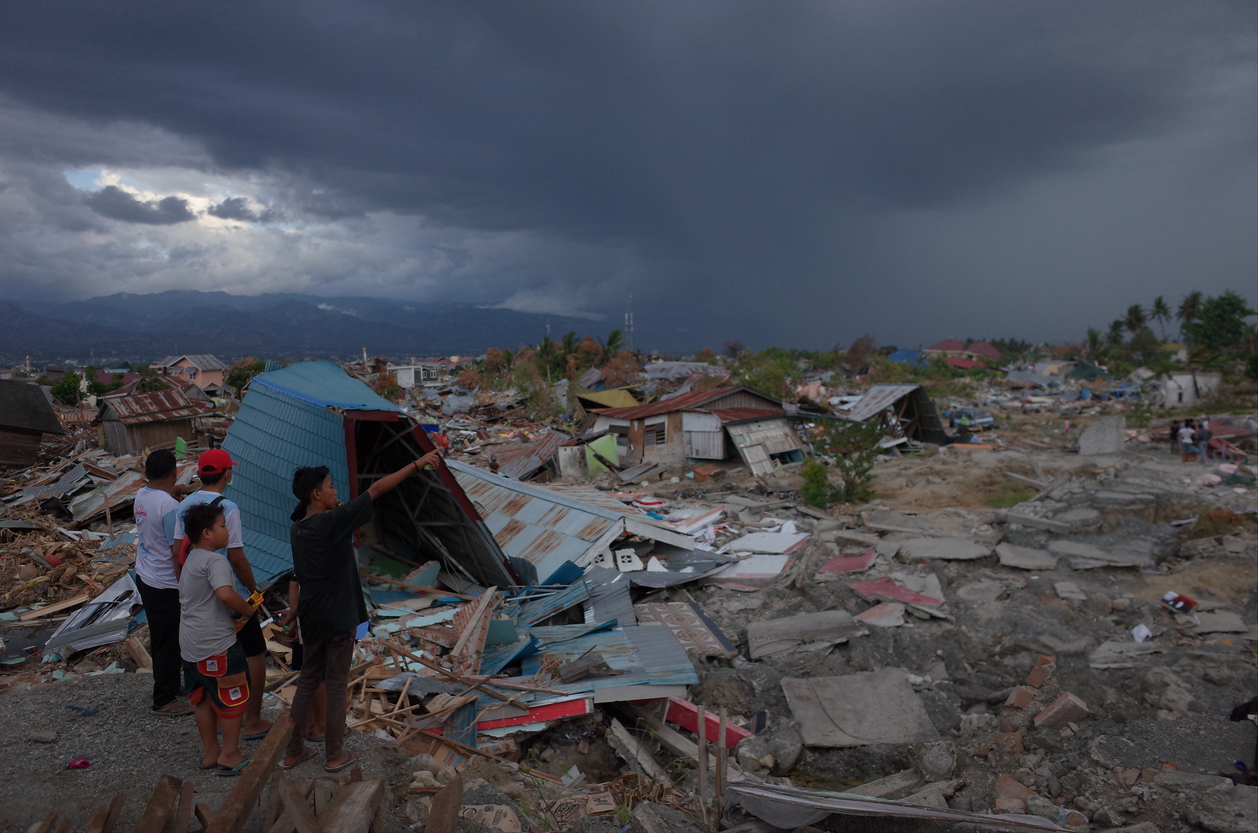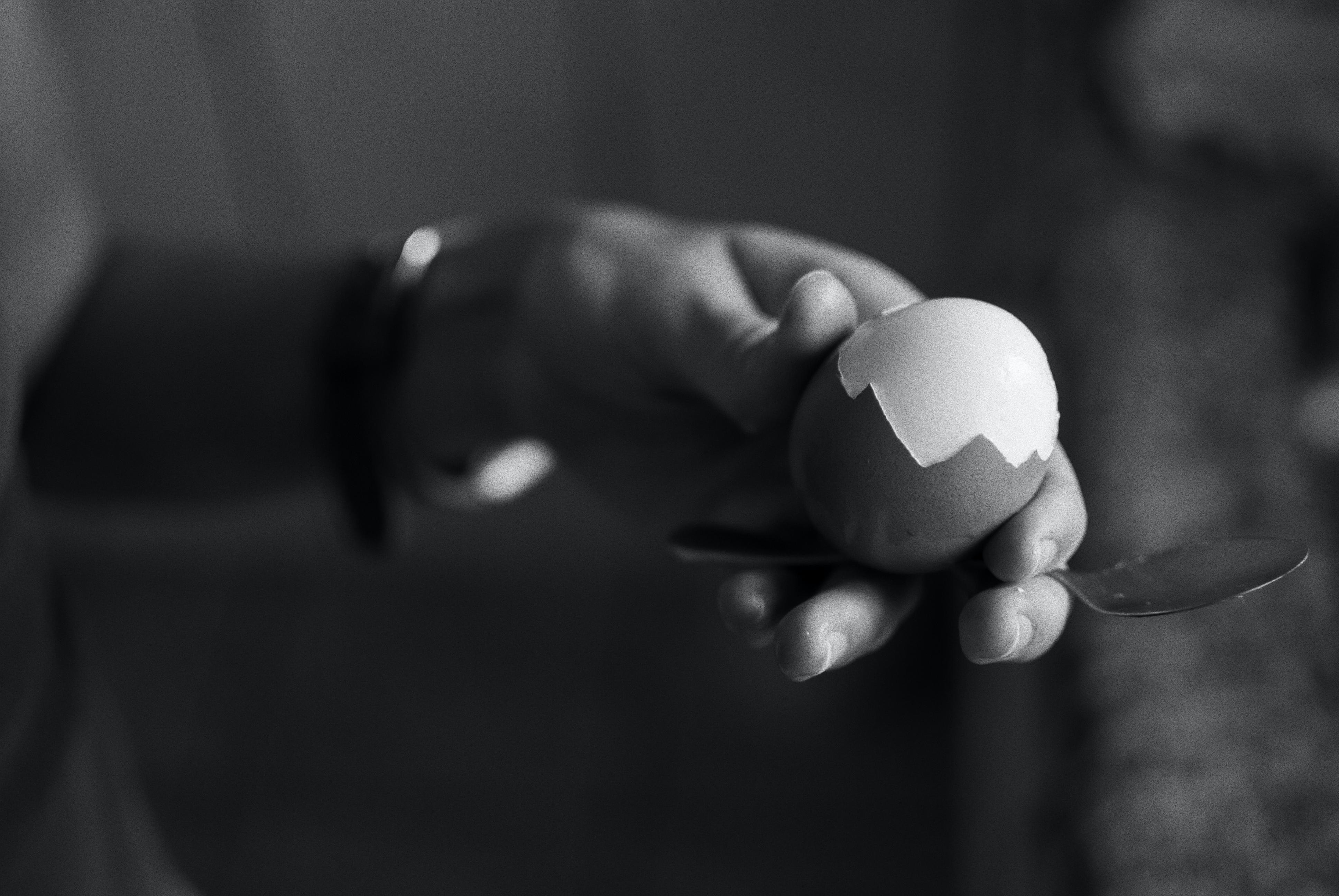After a tsunami in Sulawesi I experienced one of the worst scenes of devastation of my career. Yet, through the darkness, I witnessed unforgettable displays of human kindness.
Here’s what you need to know:
- Told by: Philippe Duffour, Vice President of Crisis24
- Expertise: People Risk
- Location: Indonesia
- Mandate: Tsunami damage assessment
- Solution: Deployment of experts and medical personnel
- Outcome: Mitigation of further injury or death
Just after nightfall on September 28, 2018, a magnitude 7.5 earthquake hit the heart of Sulawesi island in Indonesia. The ensuing tsunami gathered momentum as it engulfed the long, narrow bay leading up to the town of Palu. Two- to five-metre waves pounded the beach with incredible fury and immediately swept away hundreds of people, many of whom had gathered on the beach that evening to take part in a local festival. In just minutes, Palu became a scene out of a nightmare, its streets jammed with debris and scattered with lifeless bodies.
4,340 victims were directly attributed to the tsunami, with more than 10,000 wounded, many of them seriously (actual numbers are no doubt higher). Over 70,000 homes were lost when the soil basically liquefied. Reconstruction will take years. The grief experienced by locals is immeasurable.

Evaluate, examine, secure
At the time, we knew close to nothing about what was going on. Apart from a few dispatches, information was scarce as communications throughout the region were severed. One of our clients, hearing no news from one of its seaside installations at Palu, requested that very same night that we visit the site. Our mission: evaluate the damage with our own eyes, check on the employees’ health and safety, and provide assistance as required.
The next day, I flew to the island of Borneo via Jakarta accompanied by a doctor from Europ Assistance. The Palu airport was out of commission with runways torn asunder over hundreds of metres. We were able to complete our trip with the support of our client. A few hours later we arrived in the middle of chaos.
Twelve staff members were quickly identified, but six more missed the call when a portion of their building collapsed. We feared the worst, for them but also for ourselves. Food had just run out in town where looting had already started. The only phone service was via satellite. There didn’t seem to be any authority in control. Everywhere I saw atrocious images that I won’t ever forget.
Our doctor was called away on flight to Jakarta for six staff members. I stayed behind to provide security for six others who were holding out hope for their remaining colleagues and friends. Over the next few days we would share moments of painful yet profound humanity.
Small gestures
While waiting for emergency teams to arrive, we combed through the ruins of the building for long days in the oppressive heat. Each night we bedded down at relief sites on high ground in case aftershocks caused the waves to return. We found and identified several battered bodies. Others were never found, like many in Palu that day.
Despite all my experience in disaster zones, I was struck by the extreme devastation in Palu during those terrible days. A good portion of the population was left with nothing, some with no possessions and no loved ones, with nowhere to go and barely anything to eat or drink. Every day we were forced to look for a bit of rice and a few vegetables to eat. And yet, these completely impoverished people that had just lost everything showed me their boundless generosity. When by luck someone stumbled upon an egg still fit to eat, my client’s staff kept it for me out of sheer gratitude for my being among them and sharing their suffering.

I left Palu in a way that was just as strange as how I had arrived. The Indonesian army summoned me to the airport where I waited for hours on the tarmac before a soldier motioned me towards a departing flight. I ran up to the pilot to see where we were headed. Makassar, on the southern tip of the island. It was the end of a long journey home, after which my spirit never entirely left Palu. Still today, I keep in touch with the incredible people I spent time with there. After experiencing their worst moments with them, all the good news they’ve shared has been a blessing. Despite the wounds, life goes on.
Our expertise draws on over 30+ years in the field and a worldwide network of specialists in People Risk, Organizational Risk, Asset Risk and Cyber Risk. They rely on the Actionable Risk Management methodology to gather vital intelligence and move swiftly from planning to response, 24 hours/day, 365 days/year.


